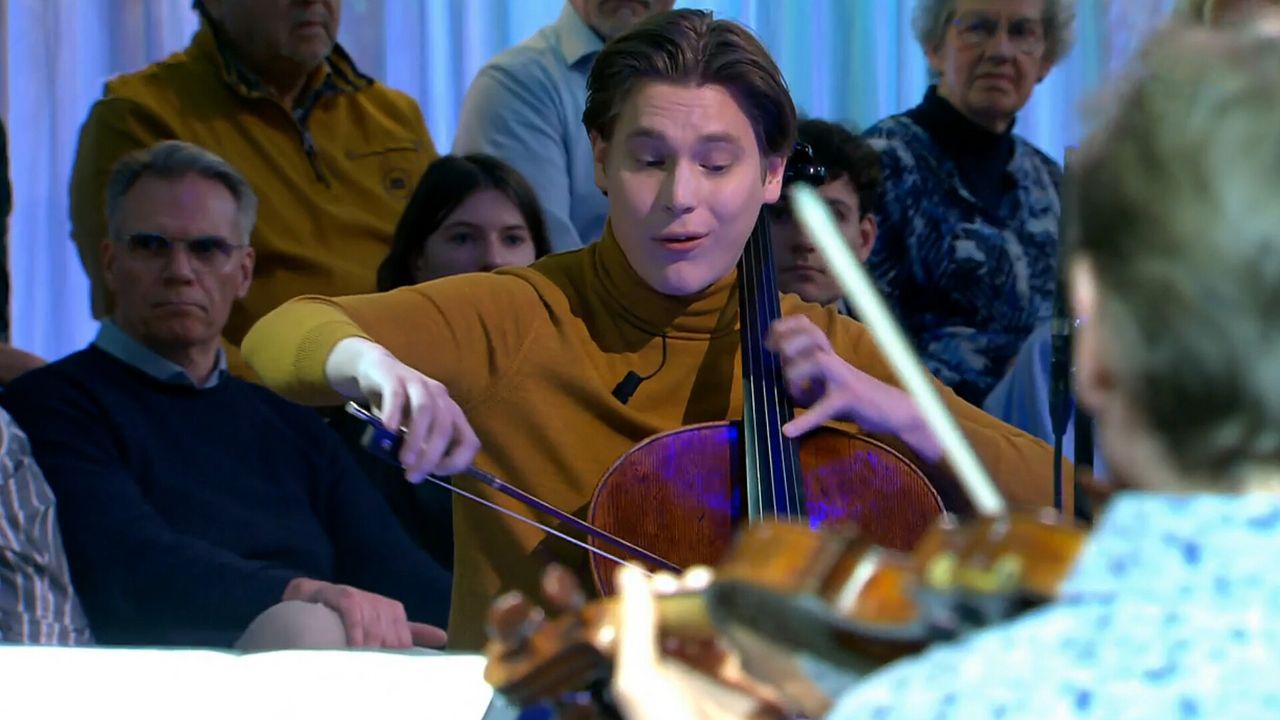Next summer we’ll be swamped by Carmens
OperaThe Edinburgh International Festival let it be known this morning that next summer’s star attraction will be a production of Bizet’s Carmen, imported from the Opéra-Comique in Paris where is premiered in 1875.
Nice, but.
Glyndebourne is also doing Carmen.
Carmen is box-office, but two in the same summer is a killer.
Doesn’t anyone in opera ever talk to anyone else?





Clearly Nicola is responding to my critique of last year’s festival in the Edinburgh Music Review and Slipped Disc ! This year we had no staged operas and 3 concert operas ,next year we will have 3 staged operas and 2 concert performances. Well done Nicola!
It is ALL down to you, Hugh.
Have you told her about the loos?
And Buxton are doing Peter Brook’s Tragédie de Carmen, which I am looking forward to.
Yes, because Edinburgh and Lewes are practically next door to each other…
And while you are about it please fix the post-interval smell of cooking upstairs in the Usher Hall- seriously.
Thanks
The 2024 EIF theme is “Rituals that Unite Us”. So it’s perfectly fitting that both the costumed audiences of Glyndebourne and the normal audiences of Edinburgh will be simultaneously attending performances of the same 149-year-old opera.
I don’t mind being smothered with or by Carmens as long as they all look like Elena Garanca.
It’s 470 miles between the two venues. This is like complaining that they’re staging the same opera in Berlin and Budapest.
EIF shared an entire production with Garsington in 2022 and as far as I know it sold out in both places.
Slightly surprising given that one of the massive successes of previous Festivals was the Faggioni/Frigerio 1977 Carmen production with Berganza making her debut in the title role, Domingo, Tom Krause and even Mirella Freni as Micaela at the premiere – all under the direction of Abbado with the LSO. Bernard Levin wrote in his book “Conducted Tour” that it was almost certainly the finest production the work had seen in the century since it’s own premiere. That production subsequently appeared also at the Opera Comique with Berganza and less successfully at La Scala with an off-form Shirley Verrett.
Obviously a lot of water has flowed under the bridge since then and it’s unlikely that many will still be around to compare the 1977 and 2024 productions. But there are bound to be some who will. Given the huge number of operas never aired at the Festival, I’d have thought another might be slightly more appropriate. But I await the Paris Production with interest. Hopefully the regie-theater practitioners will be kept well away!
“Hopefully the regie-theater practitioners will be kept well away!”
Please could we stop tarring all these people with the same brush? Some Regietheater is breathtakingly wonderful, some is teeth-grindingly awful.
And a new ROH one in March 2024
Although most classical-music organisations are registered charities, the fact remains that mounting a show open to a paying public is a form of commercial trading. In the world of commerce, the practice of rivals conferring behind the scenes to reduce the competitiveness of a market (e.g.: by co-ordinating prices or agreeing not to compete with each other directly in a given field) is deemed immoral and is often illegal. The direct competition will result in a competitive market for the best singers (and I suspect that it is the competition to book and retain ‘star’ principals that motivates opera companies to be coy about their future plans, rather than any high-minded principle of “not conspiring to create monopolies in the hope of reducing the going rate for singers and getting bigger audiences”… the big players in the opera world are notorious for booking the ‘stars’ many years in advance) and the pressure of having a comparator will furnish a strong incentive to ensure the productions are of the very highest quality (because you cannot get away with cutting corners if comparators are readily available). Assuming that the market can bear the quantity of productions on offer, this is a very good thing.
Of course, it should be observed that the concept of a ‘market’ in a pure sense is deeply problematic when applied to opera, since almost all opera companies rely to a substantial degree on philanthropy or government subsidy (i.e.: box office, other forms of trading, and commercial sponsorship are not enough to balance the books). But I think that the implied suggestion that opera houses should co-ordinate repertoire in secret to reduce the extent of direct competition is not at all axiomatic. Whilst there are legitimate forms of monopoly (a notable example being copyright law), the onus is upon those proposing such forms to articulate a satisfactory rationale and an acceptable balance between competing interests (in copyright law, this is manifested in term limits and fair-dealing exceptions). Judging by other comments, it seems that many people feel that Glyndebourne and Edinburgh are too far apart geographically to saturate the market for /Carmen/. I would be curious to know what those who feel otherwise consider to be an acceptable balance — presumably, they do not believe that there should only be one /Carmen/ production in all of 2024 throughout the whole world?
Festivals should do rare operas and leave the warhorses to the big houses. I’d like to see Schubert’s Alfonso und Estrella, Fierrabras, Bizet’s Djamileh, Delibe’s Lakme, Strauss’ Friedenstag, Donizetti’s L’esule di Roma, etc. at opera festivals.
And, Carmen will probably kill Don Jose in both renditions.